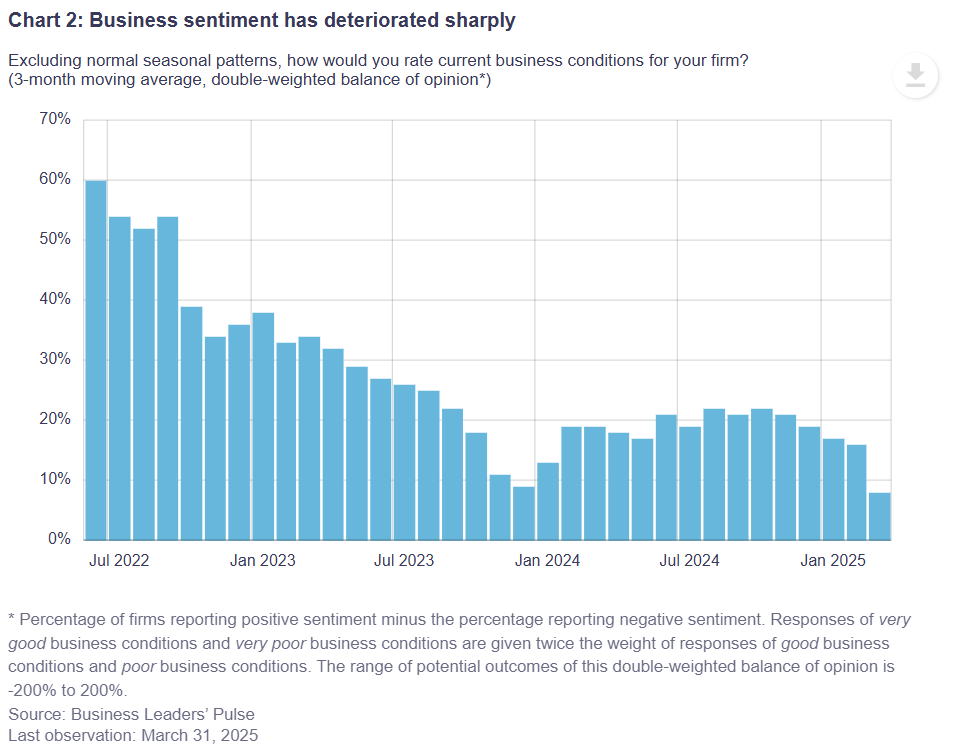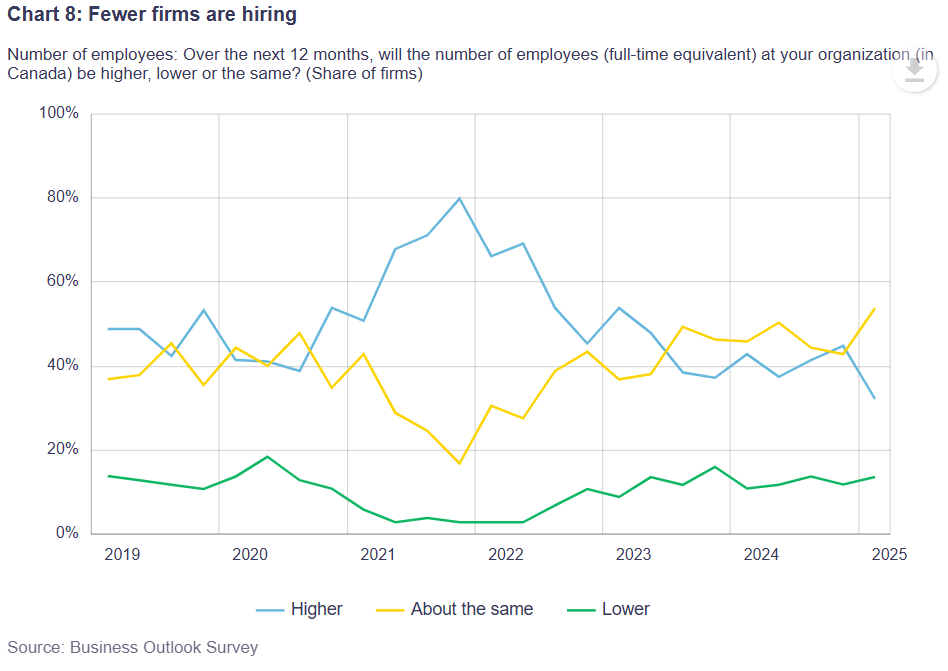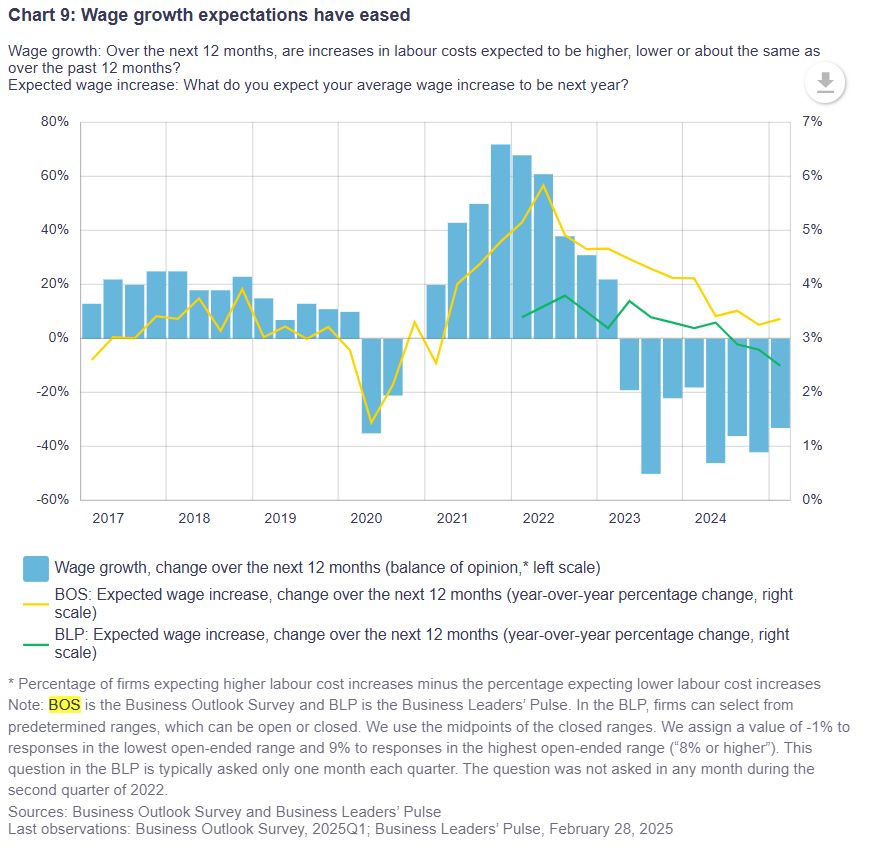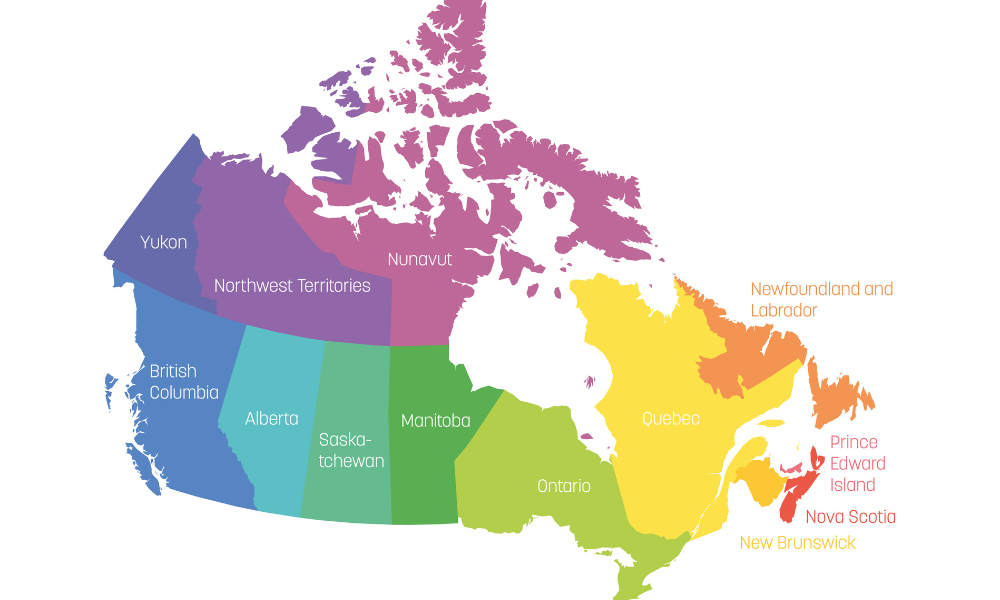Employers fear ‘stagflation’ amid rising costs, slowed economic growth and high unemployment, says report

Canadian businesses are increasingly pessimistic as the ongoing trade war initiated by U.S. President Donald Trump continues to impact the economy, according to a recent report
“Business sentiment has deteriorated, and uncertainty is widespread due to the trade conflict with the United States,” according to the Bank of Canada.
Nearly one-third (32 per cent) of firms are now operating under the assumption that a recession will occur in Canada over the next year—more than double the 15 per cent recorded in the previous two quarters.
Overall, business sentiment has declined in recent months. As of March 2025, the balance of opinion—the percentage of firms reporting positive sentiment minus those reporting negative sentiment—stands at 8 per cent.
That’s the fourth-straight month that the business sentiment measures dropped, according to the report.

Currently, Canadian firms are anticipating sluggish sales growth. Many are also delaying investment decisions, the report adds.
The Canadian Federation of Independent Business (CFIB)’s Business Barometer long-term index crashed to an all-time low in March, dropping 24.8 index points to 25.0, according to a previous report.
Hiring sentiment, wage growth
Bank of Canada reports that firms find it easier to hire workers now than it was this time last year, and the share of firms that reported having labour shortages remains lower than average.
However, fewer firms are hiring. The number of employers expecting to increase their headcount has dropped while those who say it will remain the same or lower has risen.

Some employers have laid off workers because of the tariffs imposed by the US government on Canada.
Also, employers continue to expect low wage growth. “Firms attributed this to a sustained period of lower inflation and soft demand,” says Bank of Canada.
Still, wage growth expectations remain higher than the long-run average.
“Firms that are still giving larger-than-normal wage increases often said a lingering source of upward pressure is union agreements, which have taken longer to catch up to past increases in the cost of living,” says Bank of Canada. “The impact of tariffs on wages is mixed—some businesses expect upward pressure on wages from higher inflation, while others anticipate downward pressure if demand suffers.”

What do the US tariffs mean for Canadian businesses?
Two-thirds of firms say their non-labour input costs would be affected by tariffs, according to the Bank of Canada.
According to the report, while this change in expectations is driven primarily by the threat of tariffs being implemented, current costs have already been pushed higher through several channels, including:
- the depreciation of the Canadian dollar, making imported goods more expensive
- pivoting away from current US suppliers toward new non-US suppliers, which tend to be costlier
- tariffs on other countries (e.g., China) working their way through supply chains
- some suppliers proactively raising prices in anticipation of future tariffs
Fear of ‘stagflation’
Bank of Canada notes that employers fear rising costs, slowed economic growth and high unemployment. The three are the ingredients for “stagflation,” according to a The Canadian Press reported posted in CBC.
Stagflation is almost certain at this point because of the US tariffs, Mark Kamstra, a finance professor at York University's Schulich School of Business, tells CP.
Prices are already starting to increase, and as Canadian products go up, demand for them will go down, resulting in layoffs, he says.
"[Trump] does not seem to be using the same playbook that other economic policymakers use, so anticipating what he's going to do is virtually impossible. That kind of uncertainty, even if tariffs don't go into place and we freeze everything again, companies are going to stop spending money," Kamstra says, according to the report.
Recently, Prime Minister Mark Carney announced new countermeasures against Trump’s recent tariffs. These include:
- Twenty-five per cent tariffs on non-Canada-United States-Mexico Agreement (CUSMA) compliant fully assembled vehicles imported into Canada from the United States.
- Twenty-five per cent tariffs on non-Canadian and non-Mexican content of CUSMA compliant fully assembled vehicles imported into Canada from the United States.
- Canada’s intention to develop a framework for auto producers that incentivizes production and investment in Canada.
Carney previously vowed that Canada will retaliate to tariffs issued by Trump "with purpose and with force,” according to a BBC report.




